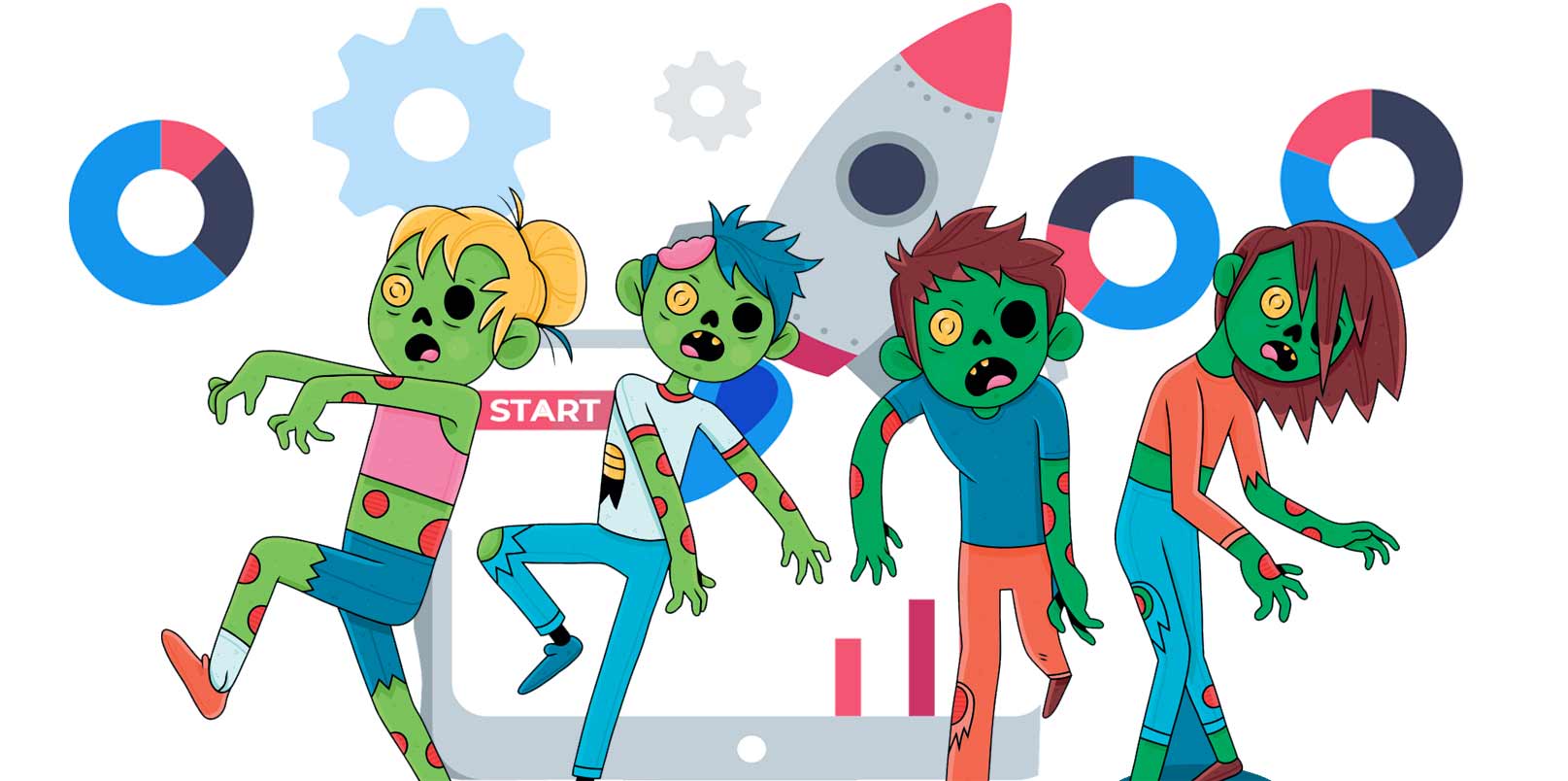With Korea’s startup ecosystem continues to depend on government-backed R&D programs, new data reveals a stark reality: nearly half of firms sanctioned for fund misuse, poor results, or abandoned R&D projects have already shut down. Experts warn that many of these companies resemble so-called “zombie startups,” surviving mainly on subsidies without showing true market viability. The findings highlight structural risks in the country’s innovation financing framework, raising difficult questions about accountability, survival, and policy effectiveness.
Government-Funded Startups Face High Failure Rates
According to data obtained from the Ministry of SMEs and Startups (MSS) by Democratic Party lawmaker Kim Han-kyu, a total of 440 companies were designated as restricted from participating in government projects between 2022-2024. Of those, 210 firms (47.7%) had closed by July 2025.
Sanctions were imposed for reasons including:
Misuse of research funds
Abandonment of R&D projects
Poor or “extremely poor” research results
Breakdown of restricted firms over three years:
2022: 47 companies
2023: 212 companies
2024: 181 companies
Among these, 162 firms were sanctioned for poor results, 68 for fund misuse, and 25 for abandoning research entirely.
Case Studies: From EdTech to Fintech Zombie Startups
There are two examples of what global communities call zombie startups illustrate the issue in South Korea:
Education Startup (founded 2017)
The education startup operated a teacher review platform and received R&D funding for platform development. After failing to deliver results and making no plan revision or project change attempts, the company was rated “non-diligent” and later deemed “extremely poor” in performance.
In September 2023, it received a two-year project ban and a ₩3.416 billion (~$2.5 million) penalty. The firm closed within two months.
Fintech Startup (founded 2014)
Next, a fintech startup developed a barcode-based overseas payment service, later securing funding to expand into secure travel and transport applications.
In December 2019, it was marked as a failed project due to insufficient proof of results. In September 2023, it was sanctioned with a two-year ban and ₩907.1 million (~$670,000) penalty. Eventually, it shuttered in February 2025.
These cases highlight how government-supported R&D programs—intended to drive innovation—can instead expose structural weaknesses, with penalties often accelerating company closures.
Policy and Legal Framework
The National R&D Innovation Act, Article 32(1), allows the government to restrict sanctioned companies from future participation within 10 years, and impose fines of up to five times the R&D funding received.
Evaluation panels under the SME Technology Development Project Guidelines assess firms based on final reports, research notes, supporting documents, and willingness to pay technology fees. Outcomes are rated as “Excellent,” “Normal,” “Insufficient,” or “Extremely Poor.”
A spokesperson from the Ministry of SMEs and Startups stressed that sanctions are applied only in clear cases of negligence:
“If a company did everything possible but still failed, we classify it as a ‘sincere failure’ and do not impose sanctions.”
Balancing Accountability and Innovation
Industry insiders argue that punishing companies solely for “poor results” risks discouraging experimentation and risk-taking in an ecosystem built on trial and error.
An industry official told local media:
“If funds are misused or projects are abandoned, sanctions are justified. But labeling firms as failures and restricting them from government support just because results fell short undermines the entrepreneurial spirit.”
However, academic experts counter that stricter accountability is necessary. Professor Choi Byung-ho of Korea University’s AI Research Institute stated:
“If companies cannot meet reasonably achievable goals, sanctions are justified. Misusing research funds wastes taxpayer money, and penalties should be strengthened further. Startups unable to survive without subsidies reveal a lack of viability.”
Zombie Startups and Innovation Risks
Ultimately, the findings highlight what experts describe as the rise of “zombie startups” — companies that rely almost entirely on government R&D subsidies for survival, without proving market competitiveness.
With venture investment contracting amid high interest rates and weak private capital inflows, many startups are leaning on public R&D programs to stay afloat. This dependency risks distorting the ecosystem, propping up firms that lack genuine sustainability while draining resources from potentially stronger innovators.
Analysts argue that for Korea’s ambition to build a globally competitive startup ecosystem, the challenge is twofold:
Ensure taxpayer funds are safeguarded through strict oversight
Create pathways for genuine innovators to fail, pivot, and scale without fear of punitive restrictions
The data underscores that while R&D subsidies remain vital for early-stage innovation, unchecked reliance may inadvertently create a cycle of dependency, reinforcing the very zombie startup problem policymakers aim to solve.
– Stay Ahead in Korea’s Startup Scene –
Get real-time insights, funding updates, and policy shifts shaping Korea’s innovation ecosystem.
➡️ Follow KoreaTechDesk on LinkedIn, X (Twitter), Threads, Bluesky, Telegram, Facebook, and WhatsApp Channel.

